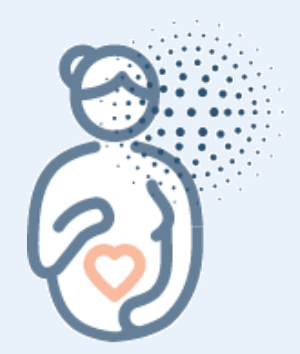Prenatal
Diagnostic test based on NGS of multiple genes associated to a disease, condition, or phenotype.


Congenital Heart Defects (CHD) are the most common type of birth defect. They include abnormalities in heart structure that occur before birth. These defects occur in the foetus while it is developing in the uterus during pregnancy.
Congenital hepatic fibrosis (CHF) is an inherited or genetic condition that affects the liver and its function. Though CHF can present individually it is often associated with other disorders that can affect kidney function (hepatorenal fibrocystic disease).
Disorders of Sex Development (DSD), formerly termed intersex conditions, occur when there is a discrepancy between the appearance of the genitalia and the genetic makeup of an individual. These disorders can present from birth to adolescence.
Embryo Developmental Arrest (EDA) is one of the mechanisms responsible for an increased level of embryo demise during the first week of in vitro development. Around 10-15% embryos permanently arrest in mitosis at the 2-to 4-cell cleavage stage.
Oligohydramnios is defined as an abnormally low volume of amniotic fluid. Amniotic fluid is crucial for fetal development and growth, serving the foetus as protection from trauma and infection as well as helping in the development of fetal lungs.
Omphalocele, also known as exomphalos, is a midline abdominal wall defect at the base of the umbilical cord where herniation of abdominal contents takes place. The herniated organs are covered by the parietal peritoneum.
Microcephaly is generally defined as a small head size, typically greater than two standard deviations below normal, as measured via occipital frontal circumference, using a measuring tape. Microcephaly is a clinical sign and not a disease.
Recurrent Pregnancy Loss (RPL) is one of the most common obstetric complications, affecting more than 30% of conceptions. These can occur during preimplantation, pre–embryonic, embryonic, early fetal, late fetal and stillbirth.
Skeletal Dysplasias, also known as osteochondrodysplasias, are a clinically and phenotypically heterogeneous group of more than 450 inherited disorders characterized by abnormalities mainly of cartilage and bone growth although they can also affect muscle, tendons and ligaments, resulting in abnormal shape and size of the skeleton and disproportion of long bones, spine and head.
Noonan Syndrome is a genetic disorder that impairs normal development of several parts of the body. The main features of Noonan Syndrome include unusual fascies (hypertelorism, down-slanting eyes, webbed neck), congenital heart disease, short stature and chest deformity. Mental retardation can be seen in approximately 25% of individuals affected by Noonan syndrome.
Meckel-Gruber Syndrome (MKS) is a lethal, autosomal recessive neurodevelopmental condition characterized by a triad of symptoms which are occipital encephalocele, large polycystic kidneys and postaxial polydactyly. It is caused by mutations in genes encoding proteins that allow an appropriate structure and function of the primary cilium.
Lissencephaly, also known as smooth brain, is a malformation of the cerebral cortex associated with an abnormal neuronal migration and development of cerebral convolutions or gyri. There can be absent gyri (agyria) or abnormally wide gyri (pachygyria) alongside abnormally thick and poorly organized cortex, diffuse neuronal heterotopia, dysmorphic ventricles and often failure of the corpus callosum to develop.
Joubert Syndrome (JS) and Related Disorders (JSRD) are a group of ciliopathies characterized by mid-hindbrain malformation, developmental delay, hypotonia, oculomotor apraxia, and breathing abnormalities. Cilia play a crucial role in appropriate axonal growth and connectivity which are essential for functional wiring of the brain.
Increased Nuchal Translucency (NT) is defined as an abnormal accumulation of fluid in the nuchal area, which is visualized as a thickened sonolucent area. It is a standardized measure obtained between 11 and 14 weeks of gestation to calculate the risk of a fetus being affected by a chromosomal aneuploidy.
Hydrops fetalis or fetal hydrops is a lethal fetal condition defined as abnormal accumulation of fluid in two or more fetal compartments presenting as ascites, pleural effusion, pericardial effusion and skin edema. It may also be associated with polyhydramnios and placental edema.
Arthrogryposis or arthrogryposis multiplex congenita (AMC) is a group of nonprogressive conditions characterized by multiple joint contractures found throughout the body at birth. It usually appears as a feature of other neuromuscular conditions or part of systemic diseases.
Gonadal Dygenesis comprises a clinical spectrum of anomalies in patients with female, ambiguous or male phenotype, absent or impaired puberty and karyotype with or without Y chromosome.
Kallmann Syndrome (KS) is a rare genetic disorder that belongs to the spectrum of isolated hypogonadotropic hypogonadism. This decrease in gonadal function is due to a failure in differentiation or migration of neurons that embryologically arise in the olfactory mucosa and travel to the hypothalamus.
Craniosynostosis is defined as the premature fusion of one or more cranial sutures, often resulting in abnormal head shape. It is a developmental craniofacial anomaly resulting from a primary defect of ossification (primary craniosynostosis) or, more commonly, from a failure of brain growth (secondary craniosynostosis).
Cleft Lip and Palate (CLP) are a group of malformations of unknown etiology with overlapping phenotypes affecting both females and males. They are the most common congenital malformations of the craniofacial region. Cleft lip and palate can be an isolated finding (non-syndromic), or they can present as a syndromic form.
Ventriculomegaly is the term used to describe ventricular dilation unrelated to increased cerebrospinal fluid pressure, such as dilation due to brain dysgenesis or atrophy. Also known as hydrocephalus, which is described as the pathological dilation of the brain’s ventricular system, these terms are used interchangeably.